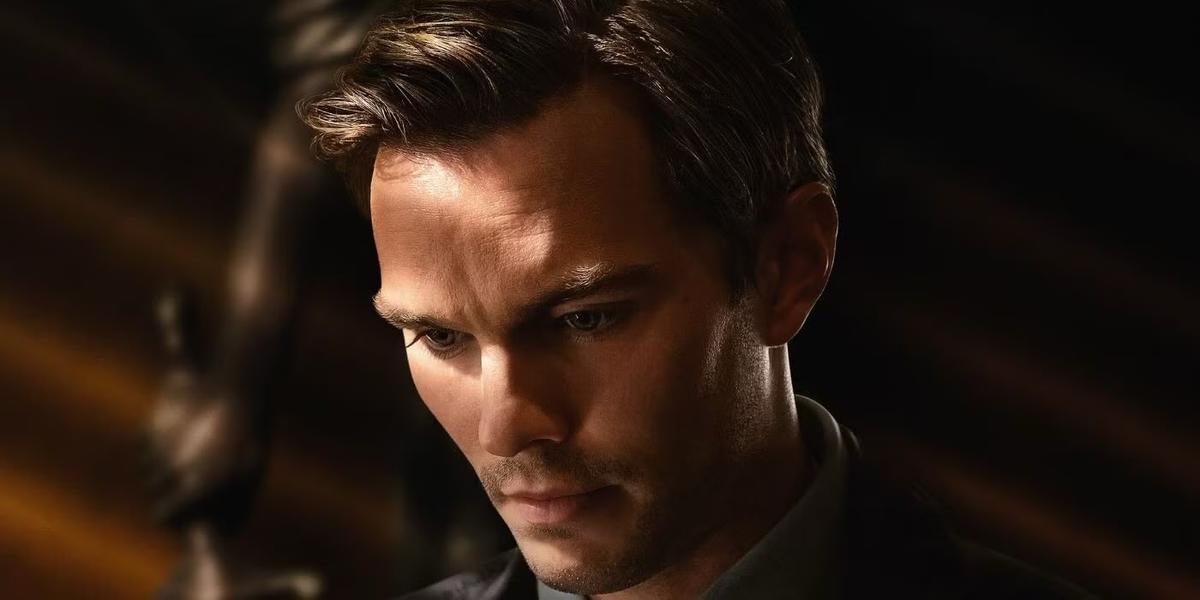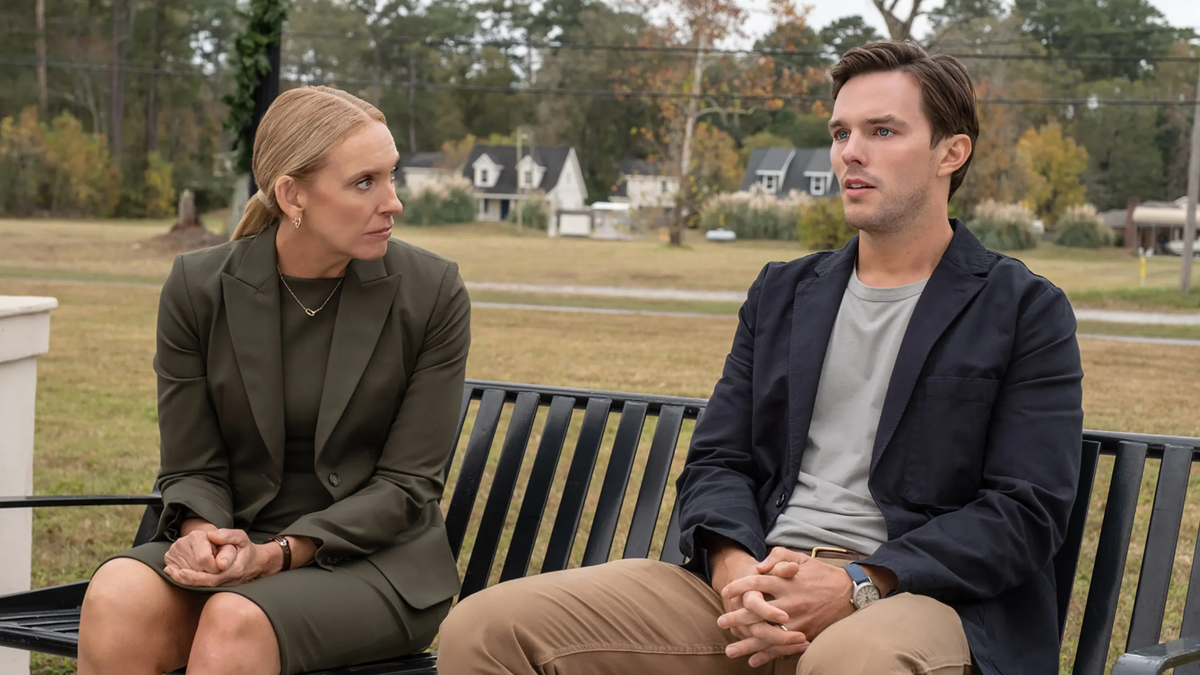
A still from ‘Juror #2’
| Photo Credit: Warner Bros
If, as the whispers go, Juror #2 is Clint Eastwood’s final directorial bow, then the 94-year-old auteur has chosen to exit the stage with an unflinching gaze fixed on justice and us imperfect mortals left to wrangle it. A courtroom drama that hums along with tidy efficiency, Juror #2 doesn’t reinvent the genre so much as it dignifies it, elevating its modest conceit to something larger — a moral crucible where one man’s conscience holds the final verdict.

Nicholas Hoult plays Justin Kemp, a man of unremarkable, NPC-like characteristics: mild-mannered, pallid, and anxiously dutiful. He’s the everyman juror saddled with a murder trial that appears open-and-shut — or so insists Faith Killebrew (Toni Collette), the bourbon-breathed, bulldozer prosecutor. But sitting quietly in the jury box, a horrifying realisation begins to dawn upin Justin: he may have accidentally caused the death of the victim in question.
Juror #2 (English)
Director: Clint Eastwood
Cast: Nicholas Hoult, Toni Collette, J. K. Simmons, Chris Messina, Zoey Deutch
Runtime: 114 minutes
Storyline: A juror for a high-profile murder trial finds himself struggling with a serious moral dilemma that could influence the verdict and potentially convict, or free, the accused killer
Eastwood’s camera is as unfussy as ever, taking in the courtroom with the patient reverence of an old man watching neighbors argue from a porch (à la Gran Torino). The pacing is deliberate, almost stubbornly so — the kind of slow-burn storytelling that theatres today seem to have placed on trial for irrelevance. Yet, for all its dogged restraint, Juror #2 is a taut little nail-biter. In fact, Hoult channels a Hitchcockian brand of neurotic unease, spending half the film gnawing his fingers to pulp. His character is gripped not just by guilt but by the cold terror of consequence — a recovering alcoholic who has stitched together a precarious new life, only to watch the seams start to fray.

A still from ‘Juror #2’
| Photo Credit:
Warner Bros
Jonathan Abrams’ screenplay plays coy with the facts of the case, doling out flashbacks like furtive confessions that shift ever so slightly with each replay. Yves Bélanger’s cinematography bathes these fractured memories in an intimate haze, pulling us into the rain-soaked murk of that fateful night — the shouting, the confusion, the sickening thud of something gone terribly wrong.
Yet Eastwood isn’t so much interested in what happened as he is in what’s right. The film becomes a meditation on culpability — how far one man will go to preserve his own fragile peace while another man’s future hangs in the balance. Hoult anchors the film with a performance that is inward, sweat-dampened, and frustratingly humane. As the moral noose tightens, Hoult’s anxious eyes flicker between self-preservation and self-destruction.

The supporting cast does more than hold their own. J.K. Simmons is a salty ex-cop juror whose grizzled sharpness threatens to poke holes in Justin’s withering nerves. Chris Messina, oily and smooth as a defense attorney, injects the trial with calculated skepticism. Collette, occasionally wrestling a slippery Southern accent, turns Killebrew into something feral: a woman for whom justice is less blind than opportunistic.

A still from ‘Juror #2’
| Photo Credit:
Warner Bros
What lingers most about Juror #2 is its restraint. There are no breathless twists, no Oscar-bait monologues to pummel the point home. Eastwood isn’t interested in showmanship. Instead, he gives us something rarer: a simmering morality play about ordinary mistakes and extraordinary consequences. With the world drowning in cynicism over the justice system, Eastwood clings, however tenuously, to the idea that justice, flawed though it may be, is worth pursuing.
It’s rather sweet knowing the oldest living filmmaker still clocking in on Hollywood’s assembly line has delivered a gentle reminder that, amidst the churn of life’s ceaseless rat race, it wouldn’t kill us to pause and acknowledge the messy, imperfect humanity of those around us.

And perhaps that’s why Juror #2 feels like a fitting final word. Eastwood’s conservatism has honed his brand of filmmaking and has never been one for reinvention. Here, too, he trusts the moral weight of the story to carry itself, even if it means eschewing the kind of cinematic fireworks that might’ve earned broader attention. It’s a pity, really, that the film hasn’t been given a wider berth. But of course, Eastwood seems unbothered by that.
Juror #2 is available to stream on BookMyShow
Published – December 17, 2024 03:45 pm IST





